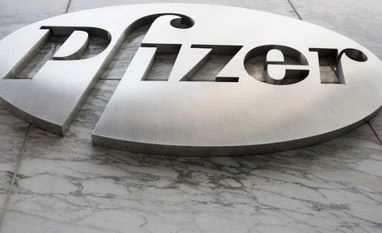India is in a position to not only augment and strengthen but also add to its cold chain capabilities, Health Secretary Rajesh Bhushan said on Tuesday, in response to a query on the country’s cold storage capacity for vaccines such as Pfizer’s that need to be kept in minus 70 degrees Celsius.
The government has been in talks with US drugmaker Pfizer, which has reported that its vaccine BNT162b2 has been more than 90 per cent effective in late-stage trials. The vaccine developed with German biotech firm BioNTech will be reviewed by the US Food and Drug Administration this month.
“We cannot reveal the specifics of our conversations with Pfizer... when it reaches finality, we will share with you,” Bhushan told reporters.
He, however, said that the national expert group on vaccine administration is in dialogue with all vaccine manufacturers — both domestic and international — and is looking at not just their status of development but also the progress of regulatory approval.
“We also engage in a dialogue on the logistical requirements if such vaccines have to be stored at temperatures which may range between 2 degrees Celsius and 8 degrees Celsius or minus 50 degrees Celsius to minus 70 degrees Celsius. It is a dynamic situation,” added Bhushan.
According to reports, Pfizer’s vaccine requires an ultra cold chain system with storage at temperatures below minus 90 degrees Fahrenheit (minus 70 degrees Celsius).
In 2019, the overall cold storage capacity in India stood at around 37-39 million tonnes — one of the largest in the world, according to the CBRE South Asia data.
A vast portion of the cold storage available in India is used for agricultural produce and very few are pharmaceutical compliant, according to the World Health Organization guidelines.
B Thiagarajan, managing director (MD), Blue Star, which has a 70 per cent market share in pharma cold chain products in India, said that India has got cold chain infrastructure to handle vaccines at 2-8 degrees Celsius and minor improvements will be required to improve the last mile.
“To manage vaccines at minus40 or minus 70 degrees Celsius, the country needs to invest a large sum to develop the infrastructure,” said Thiagarajan.
The health ministry has also acknowledged that large-scale immunisation will not only require substantial increase in the number of cold-chain points but also equipment such as reefer vans, walk-in coolers, and deep freezers. Pfizer will have to take the approval of the Central Drugs Standard Control Organisation to conduct human trials of the vaccine in India to launch its candidate here. Five other vaccine candidates are under development by the Serum Institute of India, Bharat Biotech, Zydus Cadila, Dr Reddy’s Laboratories, and Biological E in India.
Pradeep Bakshi, MD and CEO, Voltas, said the government has already floated a requirement for building a strong supply chain that will be responsible for the distribution of the vaccine end-to-end. The entire process is estimated to take another six to eight months. He said 20-50 cold rooms per state will be required to hold the vaccines until they are ready to be transported in refrigerated trucks. “The vaccines will then be distributed and stored in hospitals, clinics, pharmacies, in chest freezers, until they are delivered to a customer in a gel pack,” added Bakshi.
Roughly estimated, nearly 3 billion people in developing countries will miss out on the Covid-19 vaccine as they live in locations which lack adequate temperature-controlled storage for a mass vaccination campaign. The health secretary, however, assured that the government has a plan to make the vaccine available to all priority groups, regardless of regions.
Ketan Kulkarni, chief marketing officer and head-business development, Blue Dart, said that a significant number of vaccines provided by the government fall under the traditional cold chain temperature range, stored between 2 degrees Celsius and 8 degrees Celsius in the cold chain. The company has the required infrastructure to store at temperatures between minus 80 degrees Celsius and minus 20 degrees Celsius as part of its temperature controlled logistics division. “We use both single-use packaging, which provides temperature stability for 48-72 hours and multi-use boxes, which provide temperature stability for 96 hours,” added Kulkarni.
Unlock 30+ premium stories daily hand-picked by our editors, across devices on browser and app.
Pick your 5 favourite companies, get a daily email with all news updates on them.
Full access to our intuitive epaper - clip, save, share articles from any device; newspaper archives from 2006.
Preferential invites to Business Standard events.
Curated newsletters on markets, personal finance, policy & politics, start-ups, technology, and more.
)